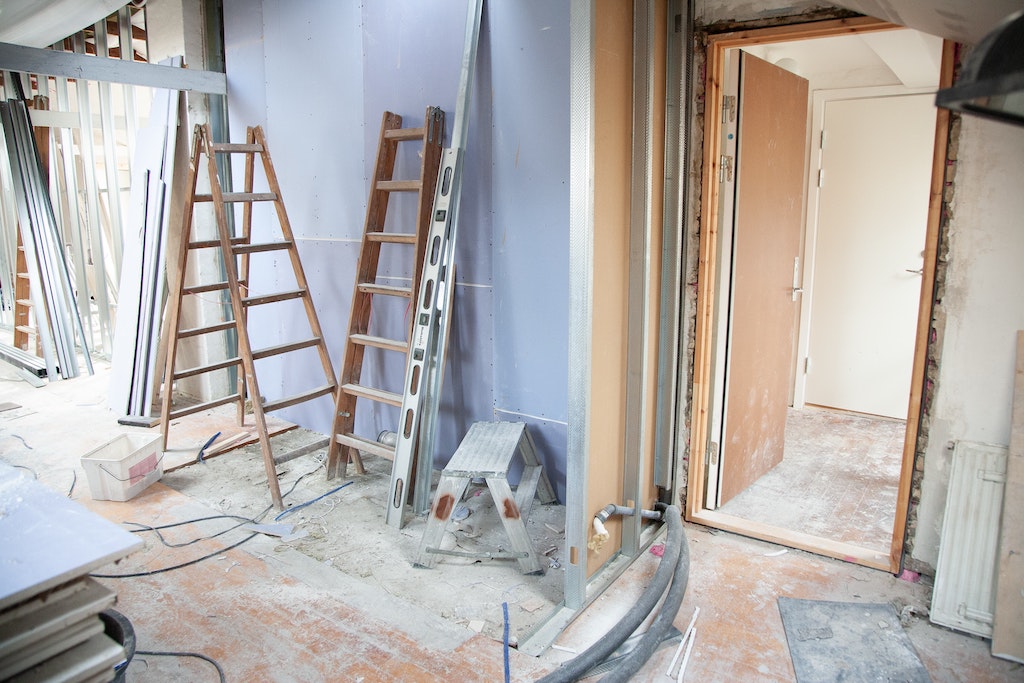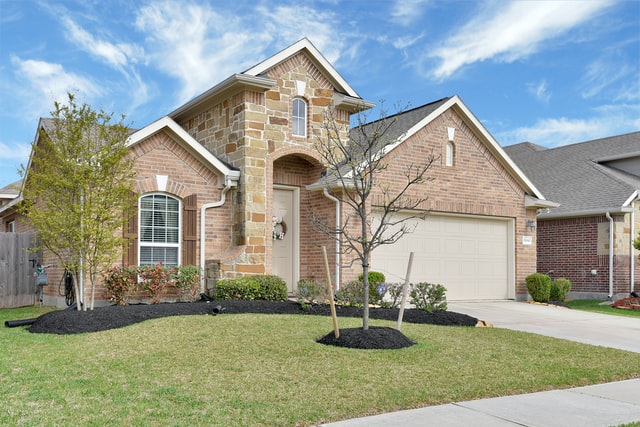It’s natural to want to improve and upgrade your living space. Perhaps you’re planning to add an extra bedroom for a growing family, or maybe you’re finally ready to build that dream kitchen you’ve always wanted. However, in the excitement of planning and visualizing these home improvements, have you paused to consider how these changes will impact your home insurance? Understanding how home improvements affect your home insurance should be a part of your renovation planning.
Home Insurance and Renovations
There is a dynamic relationship between home insurance and the process of renovating your residence. There are some considerations you must account for while you are improving your home.
How home improvements can increase your home’s insured value
Home improvements can add considerable value to your property but also influence another critical aspect of homeownership – your home’s insured value. Investing in your home through various improvements doesn’t merely make your living space more comfortable or aesthetically pleasing. These upgrades can raise the replacement cost of your home.
When you make substantial improvements, such as remodeling your kitchen with high-end appliances and fixtures or adding an extra bedroom, it increases the cost of rebuilding or replacing your home should it be damaged or destroyed. This is what insurers refer to as the replacement cost. The replacement cost is a key factor in determining the coverage amount for your home insurance policy, essentially acting as the upper limit on what your insurance provider will pay out in case of a claim.
For instance, before a renovation, the replacement cost of your home was $200,000, and your insurance coverage was appropriately matched to this figure. Now, you’ve invested $50,000 in a comprehensive kitchen remodel with top-of-the-line appliances and high-quality finishes. The upgraded kitchen means your home’s replacement cost might have jumped to $250,000. If a disastrous event, like a fire, destroys your home, and you haven’t updated your policy, your insurance would only cover the original replacement cost of $200,000, leaving you to cover the remaining $50,000 out of pocket.
Similar principles apply when you expand your living space. Adding an extra bedroom or bathroom increases your home’s square footage, raising the replacement cost. Equally, upgrading to more expensive materials or installations, such as premium hardwood flooring or a high-efficiency HVAC system, increases your home’s replacement value.
Contact your insurance provider and discuss the changes you’ve made to your home. They can help you reassess your home’s replacement cost, ensuring your policy reflects these changes and you have adequate coverage for your upgraded property.
Home improvements that could lower your insurance premium
Not all home improvements will lead to higher insurance premiums. Some upgrades could lower your rates. Renovations that enhance the safety, security, and resilience of your home are often viewed favorably by insurance companies.
- Security Systems: Modern security systems protect comprehensively against burglary, trespassing, and vandalism. Installing a high-quality security system can substantially reduce the likelihood of a break-in, making your home safer and less of a risk in the eyes of your insurer.
- Fire Prevention Systems: Fires can cause devastating damage to homes, making fire prevention a key area of concern for insurance companies. Installing a sprinkler system or smoke detectors can significantly reduce the risk of fire damage, potentially leading to lower premiums.
- Roof Upgrades: Your roof is a crucial element in protecting your home against weather-related damage. Upgrading to a sturdy, weather-resistant roof can decrease the risk of damage from storms, hail, and other elements. A newer, stronger roof could also potentially lead to insurance discounts.
- Plumbing and Electrical Updates: Older homes often have outdated wiring and plumbing systems, which can increase the risk of electrical fires or water damage. Updating these systems can make your home safer and reduce the likelihood of such accidents, which may be rewarded by lower insurance rates.
- Disaster-Proofing Measures: Depending on where you live, investing in disaster-proofing improvements such as hurricane shutters, seismic retrofits for earthquake preparedness, or reinforced roofing for areas prone to high winds can significantly reduce the risk of damage from natural disasters. Insurance companies often offer discounts for these resilience-boosting enhancements.
- Energy-Efficient Installations: Some insurers recognize the value of energy-efficient installations like solar panels or geothermal heating systems. Besides contributing to environmental sustainability, these systems can also increase your home’s resilience to power outages and fluctuations.
In the end, strategic home improvements can make your home safer and more comfortable and help you save on your insurance costs in the long run.
Inform your insurance company about renovations
Keep your insurance provider in the loop about your home improvement plans. Notify them before you begin renovations, especially if you’re making significant changes that will impact the insured value of your home. You may also need to discuss remodeling insurance, which can cover any risks associated with the renovation process.
Once your renovations are complete, revisit your policy with your insurer to ensure it reflects your home’s new value. Remember to inform them of any safety or security upgrades as these may qualify you for discounts on your premium.
Your home is not just a place to live; it’s also a significant investment. You must protect its value, especially when you make improvements. Home renovations offer numerous benefits, from increasing your home’s value to enhancing your living conditions. However, it’s equally important to understand how these improvements can impact your home insurance.
ion, the replacement cost of your home was $200,000, and your insurance coverage was appropriately matched to this figure. Now, you’ve invested $50,000 in a comprehensive kitchen remodel, complete with top-of-the-line appliances and high-quality finishes. The upgraded kitchen means your home’s replacement cost might have jumped to $250,000. If a disastrous event occurs, like a fire, that completely destroys your home, and you haven’t updated your policy, your insurance would only cover the original replacement cost of $200,000, leaving you to cover the remaining $50,000 out of pocket.
Similar principles apply when you expand your living space. Adding an extra bedroom or bathroom increases your home’s square footage, which in turn raises the replacement cost. Equally, upgrading to more expensive materials or installations, such as premium hardwood flooring or a high-efficiency HVAC system, contributes to an increase in your home’s replacement value.
Therefore, it is important to reassess your home’s insured value following any significant improvements. Contact your insurance provider and discuss the changes you’ve made to your home. They can help you reassess your home’s replacement cost, ensuring your policy reflects these changes, and you have adequate coverage for your upgraded property.
Home improvements that could lower your insurance premium
Not all home improvements will lead to higher insurance premiums. In fact, some upgrades could potentially lower your rates. Renovations that enhance the safety, security, and resilience of your home are often viewed favorably by insurance companies.
- Security Systems: Modern security systems provide comprehensive protection against burglary, trespassing, and vandalism. Installing a high-quality security system can substantially reduce the likelihood of a break-in, making your home safer and less of a risk in the eyes of your insurer.
- Fire Prevention Systems: Fires can cause devastating damage to homes, making fire prevention a key area of concern for insurance companies. Installing a sprinkler system or smoke detectors can significantly reduce the risk of fire damage, potentially leading to lower premiums.
- Roof Upgrades: Your roof is a crucial element in protecting your home against weather-related damage. Upgrading to a sturdy, weather-resistant roof can decrease the risk of damage from storms, hail, and other elements. A newer, stronger roof could also potentially lead to insurance discounts.
- Plumbing and Electrical Updates: Older homes often have outdated wiring and plumbing systems, which can increase the risk of electrical fires or water damage. Updating these systems can make your home safer and reduce the likelihood of such accidents, which may be rewarded by lower insurance rates.
- Disaster-Proofing Measures: Depending on where you live, investing in disaster-proofing improvements such as hurricane shutters, seismic retrofits for earthquake preparedness, or reinforced roofing for areas prone to high winds can significantly reduce the risk of damage from natural disasters. Insurance companies often offer discounts for these resilience-boosting enhancements.
- Energy-Efficient Installations: Some insurers recognize the value of energy-efficient installations like solar panels or geothermal heating systems. Besides contributing to environmental sustainability, these systems can also increase your home’s resilience to power outages and fluctuations.
Before embarking on these upgrades it’s advisable to speak with your insurance provider. Different insurance companies may have different policies regarding which improvements qualify for discounts. In the end, strategic home improvements can not only make your home safer and more comfortable, but they can also help you save on your insurance costs in the long run.
How to inform your insurance company about home improvements
Keep your insurance provider in the loop about your home improvement plans. Notify them before you begin renovations, especially if you’re making significant changes that will impact the insured value of your home. You may also need to discuss remodeling insurance, which can provide coverage for any risks associated with the renovation process itself.
Once your renovations are complete, revisit your policy with your insurer to make sure it reflects the new value of your home. Remember to inform them of any safety or security upgrades as these may qualify you for discounts on your premium.
Your home is not just a place to live; it’s also a significant investment. You must protect its value, especially when you make improvements. Home renovations offer numerous benefits, from increasing your home’s value to enhancing your living conditions. However, it’s equally important to understand how these improvements can impact your home insurance.
Remember to keep your insurance provider informed of any significant changes to your property and reassess your coverage needs post-renovation. By doing so, you’ll ensure that your home and its enhancements are adequately protected, providing you with peace of mind as you enjoy your upgraded living space. Plan your renovations wisely and embrace the joy and value they bring to your home, knowing you’re well-covered.




